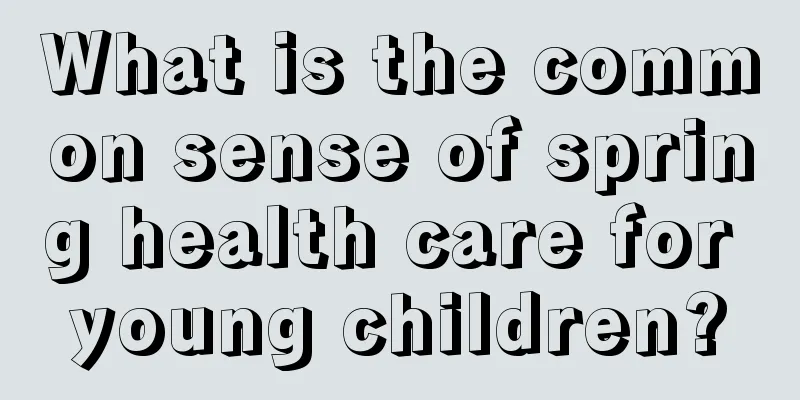Avoid 6 common mistakes when drinking juice for babies

|
Fruit juice is a beverage with high nutritional value. Drinking some juice in moderation is certainly good for the baby's health, but if drinking juice affects or even replaces normal diet and drinking water, it will not only be of no benefit, but will have a counterproductive effect. Myth 1: Drinking juice as water Let me give you an example: 3-year-old Lele loves to drink juice. After his parents heard that drinking juice is good for children’s health, they blindly bought boxes of juice for Lele. As a result, Lele can't live without juice all day long, especially in summer, he drinks juice as if it were water. In recent days, Lele suddenly developed a loss of appetite, and even had symptoms of vomiting and dizziness. After going to the hospital for diagnosis, the doctor said that it was probably due to Lele's long-term drinking of large amounts of fruit juice, which led to symptoms of hyponatremia and increased intracranial pressure. Expert tip: This disease is called juice syndrome abroad. Symptoms of hyponatremia and cerebral edema are caused by excessive intake of low-sodium beverages such as fruit juice. It can also cause malnutrition and afebrile seizures in infants under two years old. Drinking some fruit juice is certainly good for your baby's health, but it must not affect or even replace normal diet and drinking. If children are allowed to drink fruit juice before meals, it will affect their appetite, especially in summer. The amount of fruit juice intake should generally be less than 300 ml per day. Myth 2: Equating juice with fresh fruits and vegetables Some parents believe that juice can replace fruits and vegetables, so it doesn’t matter if the baby is picky about food, doesn’t eat vegetables, or doesn’t eat fruits. As long as the baby is given enough juice, it can still provide nutrition to the baby. In fact, this idea is unscientific. Expert tips: First of all, ready-made fruit juices generally contain various additives such as colorants and preservatives, and their nutritional value cannot be compared with that of fresh fruits and vegetables. Even if you squeeze your own fresh juice, the nutrients left in the solid residue are often wasted. However, compared with fruits and vegetables, the biggest drawback of fruit and vegetable juice is its serious lack of fiber. Food fiber can promote baby's digestion, prevent baby's constipation, prevent excess calories, and control obesity. Therefore, it is called the "seventh nutrient" in the medical field. Experts recommend that when giving your baby juice, do not waste the solid residue so that they can absorb more fiber. Myth 3: Overheating the juice Many mothers have the habit of heating fruit juice before giving it to their babies to drink, and this is often overheated in winter. Little do people know that the vitamins in fruits are destroyed to a certain extent during the juicing process, and excessive heating aggravates the degree of destruction. Therefore, the temperature should not be too high and the time should not be too long when heating the juice. Expert tip: Juice should not be heated. Instead, it is more nutritious when consumed at room temperature or refrigerated. Myth 4: Not rinsing your mouth after drinking juice Many mothers often do not pay attention to their baby's oral hygiene. After giving their baby juice, they do not let the baby rinse his mouth with water. This can easily lead to tooth decay and other adverse effects on oral health. Expert tip: Every time after giving your baby juice, especially before going to bed, the mother should give the baby a little boiled water to help clean the baby's mouth. Myth 5: The more juice you drink, the better If children drink excessive amounts of fruit juice for a long time, they will develop juice urine. This is because a large amount of sugar in the fruit juice cannot be absorbed and utilized by the human body, but is excreted from the kidneys, causing changes in urine. In addition, various fruit juice drinks contain more sugar or saccharin and a large amount of electrolytes, which will hinder the body's absorption of copper. Copper deficiency will affect the production of hemoglobin, thereby leading to anemia. Expert Tip: Parents should dilute high-concentration apple juice and pear juice with water when giving them to children, and should let children drink juice in moderation. Myth 6: Taking medicine and juice together In order to allow children to take medicine smoothly, parents often mix the medicine into milk or juice. However, fruit juice contains a large amount of acidic vitamin C. If some acid-intolerant or alkaline drugs are taken with fruit juice, it will not only reduce the efficacy of the drugs, but also cause adverse reactions. If sulfa drugs are taken together with fruit juice, it will increase the burden on the kidneys and be detrimental to the patient's health. Expert tip: When giving medicine to children, do not add it to milk or juice. Instead, add a small amount of sugar water or put it in rice or steamed buns for the child to eat. |
<<: 10 tips for managing your baby's toys
>>: 8 types of food to avoid before 1 year old
Recommend
What to do if your child is allergic to pollen
Children are very likely to be allergic to pollen...
Newborn baby eczema on head
Eczema is a very common disease, especially for n...
Can a one-year-old child eat yogurt?
Babies usually drink breast milk and formula milk...
What happens if the baby wears too hot?
If the baby stays in a relatively hot environment...
What to do if your baby sneezes and has a runny nose
There are many common physical problems for babie...
What should I do if my child has a fish bone stuck in his throat?
Fish is a food that we all love to eat, but there...
What are the benefits of a glass of milk before bed for children?
Milk is very beneficial to our body and can suppl...
Why does my baby drool due to eczema?
Eczema is one of the more common skin diseases in...
Is blue light harmful for jaundice?
There are many ways to solve the problem of neona...
Why is my child's hair hard?
Nowadays, most young people are very particular a...
3 month old baby breast milk indigestion symptoms
For all mothers, especially three-month-old babie...
What to do if your child has neck pain
There may be many reasons why children have neck ...
How tall and heavy is a two-year-old and two-month-old baby?
After a child is born, there will be some changes...
How to treat sinusitis in children
There are many people around us suffering from rh...
What to do if your one and a half year old baby has hernia
Children are most likely to get hernia when they ...









